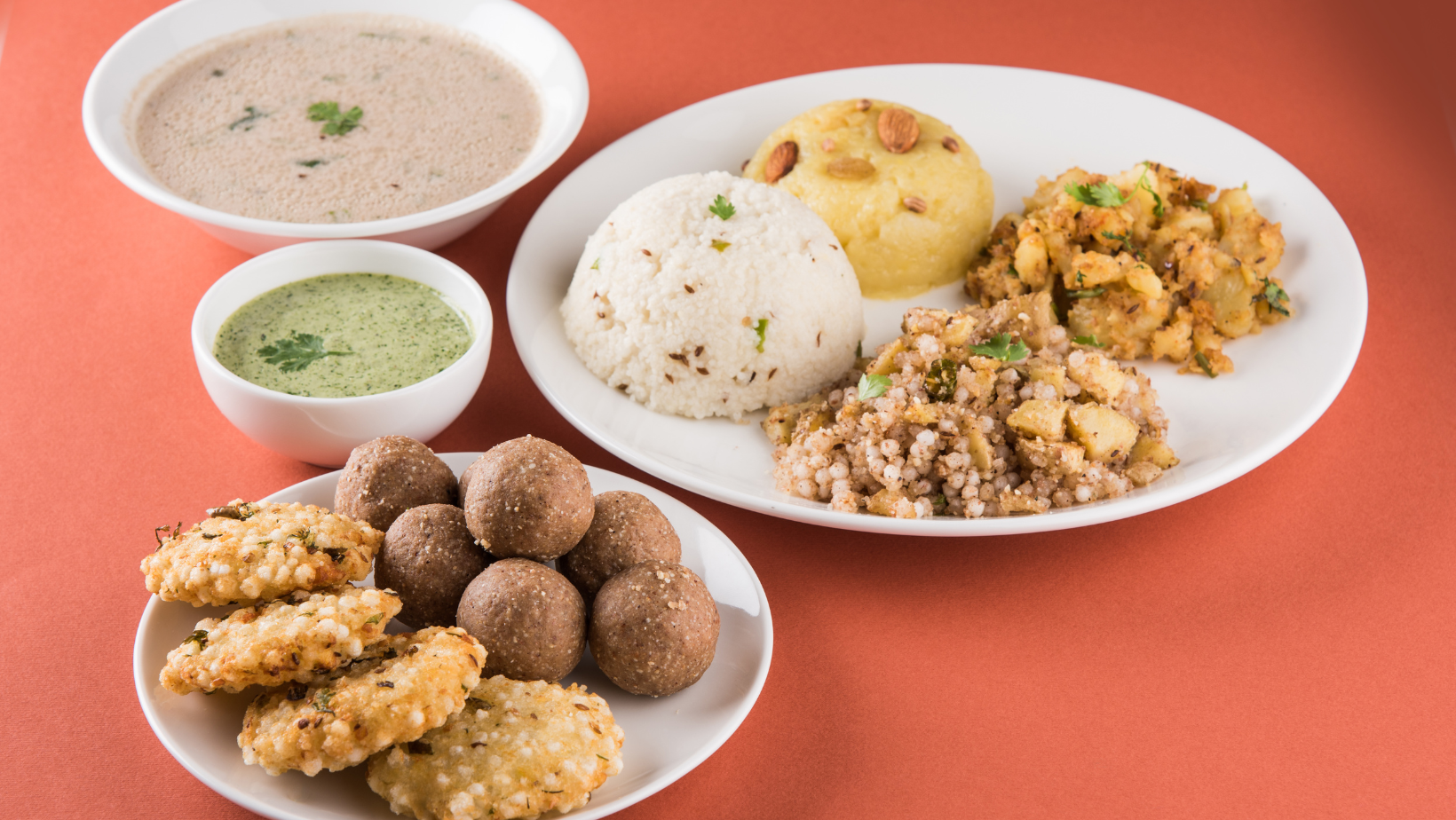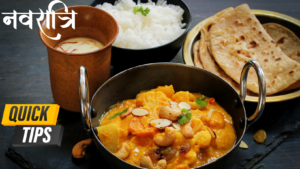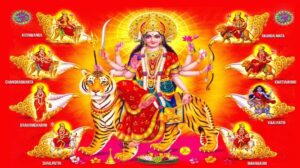Navratri Fast: Food Guide
Navratri is a nine-day Hindu festival that celebrates the victory of good over evil. It is a time of spiritual devotion and purification, and many people choose to fast during this time. Fasting can be a challenging experience, but it is also a rewarding one. It can help to cleanse the body and mind, and it can bring you closer to your spiritual beliefs.
If you are planning to fast during Navratri, it is important to plan your meals carefully. You need to make sure that you are getting all of the essential nutrients that your body needs, while still following the rules of the fast.
What to eat during Navratri fasting
There are a variety of foods that you can eat during Navratri fasting. Some of the most popular options include:
- Fruits and vegetables: All fruits and vegetables are allowed during Navratri fasting. This is a great way to get your daily dose of vitamins and minerals.
- Nuts and seeds: Nuts and seeds are a good source of protein and healthy fats. They can also help to keep you feeling full and satisfied between meals.
- Dairy products: Milk, yogurt, and cheese are all allowed during Navratri fasting. These foods are a good source of calcium and protein.
- Sattvik flours: Sattvik flours are flours that are considered to be pure and healthy. Some examples of sattvik flours include buckwheat flour, amaranth flour, and sago flour.
- Spices: Certain spices are allowed during Navratri fasting. These spices include cumin, coriander, turmeric, and garam masala.
Navratri fasting recipes
There are many delicious and nutritious recipes that you can make during Navratri fasting. Here are a few ideas:
- Buckwheat khichdi: Khichdi is a hearty and nutritious dish that is perfect for Navratri fasting. It is made with buckwheat flour, rice, vegetables, and spices.
- Sabudana vada: Sabudana vada is a popular snack or appetizer that is made with sago pearls, potatoes, peanuts, and spices.
- Kuttu pakoras: Pakoras are a delicious and versatile snack or appetizer. They can be made with a variety of vegetables, but during Navratri fasting, they are typically made with buckwheat flour.
- Fruit chaat: Fruit chaat is a refreshing and healthy snack or dessert. It is made with a variety of chopped fruits, yogurt, and honey.
- Navratri thali: A Navratri thali typically includes a variety of dishes, such as khichdi, pakoras, vegetables, and yogurt.
How to stay healthy during Navratri fasting
It is important to stay hydrated and nourished during Navratri fasting. Here are a few tips:
- Drink plenty of water throughout the day.
- Eat regular meals and snacks.
- Avoid sugary drinks and processed foods.
- Include a variety of foods in your diet to ensure that you are getting all of the essential nutrients that your body needs.
If you have any health concerns, be sure to talk to your doctor before fasting.
Additional tips for Navratri fasting
Here are a few additional tips for Navratri fasting:
- Start your day with a cup of warm water and honey. This will help to detoxify your body and give you a boost of energy.
- Eat small, frequent meals throughout the day. This will help to keep your blood sugar levels stable and prevent hunger pangs.
- Avoid caffeine and alcohol, as these substances can dehydrate you.
- Get enough sleep. This will help you to stay energized and focused during the day.
- Listen to your body. If you are feeling unwell, break your fast and consult with a doctor.
Navratri fasting can be a rewarding experience. By following these tips, you can stay healthy and nourished while observing this important Hindu festival
What is Navratri fasting?
Navratri fasting is a Hindu religious practice of abstaining from certain foods and drinks during the nine-day Navratri festival. Navratri is a time of devotion to Goddess Durga, and fasting is seen as a way to purify the body and mind and to seek her blessings.
What foods and drinks are avoided during Navratri fasting?
The specific foods and drinks that are avoided during Navratri fasting vary depending on the region and tradition. However, some common restrictions include:
- Meat, fish, and eggs
- Animal products such as milk, yogurt, and cheese
- Certain vegetables such as onions, garlic, and mushrooms
- Alcohol and tobacco
- Foods that are high in oil and spices
Why are these foods and drinks avoided during Navratri fasting?
There are a few reasons why these foods and drinks are avoided during Navratri fasting. One reason is that they are considered to be tamasic, or impure. Tamasic foods are believed to increase the body’s rajas (passion) and tamas (inertia) gunas, which can lead to negative thoughts and emotions.
Another reason for avoiding these foods and drinks is that they can be difficult to digest. Fasting is a time to give the digestive system a rest, so it is important to avoid foods that can be difficult to break down.
Finally, some of these foods and drinks are avoided because they are associated with violence and death. For example, meat and fish are associated with the killing of animals, and alcohol is associated with intoxication. During Navratri, devotees strive to create a peaceful and harmonious environment, so they avoid foods and drinks that are associated with violence and negativity.
What foods can I eat during Navratri fasting?
There are many delicious and nutritious foods that you can eat during Navratri fasting. Some popular options include:
- Fruits and vegetables such as apples, bananas, oranges, cucumbers, tomatoes, and potatoes
- Whole grains such as rice, quinoa, and buckwheat
- Legumes such as lentils and beans
- Nuts and seeds
- Dairy-free milk alternatives such as almond milk, soy milk, and coconut milk
What are some tips for fasting during Navratri?
Here are some tips for fasting during Navratri:
- Plan your meals ahead of time. This will help you to avoid making unhealthy choices when you are hungry.
- Eat small, frequent meals. This will help to keep your blood sugar levels stable and prevent hunger pangs.
- Drink plenty of fluids. Water is the best choice, but you can also drink herbal teas and fruit juices.
- Avoid caffeine and alcohol. These substances can dehydrate you and make you feel more tired.
- Get enough rest. Fasting can take a toll on your energy levels, so it is important to get plenty of sleep.
What are the benefits of Navratri fasting?
Navratri fasting has many benefits, both physical and spiritual. Some of the physical benefits of Navratri fasting include:
- Detoxification: Fasting helps to remove toxins from the body.
- Weight loss: Fasting can help to promote weight loss.
- Improved digestion: Fasting can help to improve digestion and absorption of nutrients.
- Boosted energy levels: Fasting can help to boost energy levels.
- Reduced risk of disease: Fasting has been shown to reduce the risk of chronic diseases such as heart disease, stroke, and diabetes.
Some of the spiritual benefits of Navratri fasting include:
- Increased focus and concentration: Fasting can help to focus the mind and improve concentration.
- Increased spiritual awareness: Fasting can help to increase spiritual awareness and connect with the divine.
- Reduced stress and anxiety: Fasting can help to reduce stress and anxiety.
- Increased sense of well-being: Fasting can help to increase overall sense of well-being.
Navratri Fasting Rules and Tips
Navratri Fasting Rules and Tips Navratri Fasting Rules: Navratri is...
Read MoreNavratri Fast: Everything You Need to Know
Navratri Fast: Food Guide Navratri is a nine-day Hindu festival...
Read MoreA Step-by-Step Guide to Performing Aarti during Navratri
Navratri Aarti नवरात्रि में आरती कैसे करें: एक आसान गाइड...
Read MoreEssential Navratri Puja Samagri: Your Complete Checklist
Navratri Puja Samagri नवरात्रि पूजा सामग्री की पूरी सूची: घर...
Read MoreNavratri Puja Vidhi: A Step-by-Step Guide to Worshipping Goddess Durga
Navratri Puja Vidhi नवरात्रि पूजा विधि: घर पर नवरात्रि पूजा...
Read MoreHow To Do Navratri Puja At Home
How To Do Navratri Puja At Home? A Step-by-Step Guide...
Read More







3 thoughts on “Navratri Fast: Everything You Need to Know”